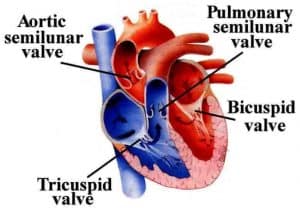It’s below zero and churches have closed and I’m home at my wooden kitchen table with a cup of fresh coffee, thinking about the inspirational article I just read from a favorite site. Remembering what God has done for you, the author said, is a spiritual discipline. We should view our salvation with the same enthusiasm the Jews had when God rescued them in the book of Esther.
Hmm…
Why don’t we as humans often appreciate what Jesus did for us on the cross?
I think of the patient coming out of anesthesia. He starts to wake up, and he’s in pain, and there’s a nurse standing over him. He’s in a blur of tubes and lines and pain and pills and people telling him to lift up his head and say his name and get him up to go walking.
When the surgeon comes in the next morning, the patient says to him, “Thank you for saving my life.”
The surgeon smiles and grasps his hand and says, “Oh you’re welcome, we have a great team.”
The patient has only a vague idea of what he’s saying thank you for.
“We had some excitement with you,” the surgeon might say. “They brought you to the hospital after you fell over at work, and we were just ready to start another surgery when we heard about you. You have a few broken ribs from CPR, but you look great.”
Tears form in the patient’s eyes as he looks down at the surgeon’s hand on his.
He didn’t know all of this. He wasn’t awake, or if he was awake, he doesn’t remember.
“Thank you,” he whispers, again.
But still, he only has a vague idea of what he’s saying thank you for.
What does he know of the screaming in the factory when he fell, of the panic of his co-worker who wondered if he was doing CPR correctly, of the frantic caller to 911, of the other workers who stopped their line duty to see if they could help? What does he know of the ambulance screaming through traffic, the many people in cars who are also on their way to important things who still pull over and stop as the ambulance barrels past through red lights? What does he know of the shock to his body that brought his heart back, of the emergency room getting the message and bustling over to greet him (no, it’s mostly not like TV shows), of the cardiologist who was busy but dropped everything he was doing to run to the ER, of the cath lab who changed their plans and delayed their next patient to bring him to the table, of the nurse at the computer screen who made the phone call to…me!…of the person I meant to talk to next who suddenly had to wait because I had to run down three flights of stairs to catch the surgeon before he made a cut in someone else’s chest, of the operating room nurses who rushed to set up a new room, of the tables of expensive sutures and instruments and sterile gloves and gowns, of the careful incision by the surgeon, of the needles as small as a finger clipping and the hours spent making careful, tiny stitches while the surgeon’s stomach growled, of the critical nurses who re-arranged their schedule to receive him in critical care, of the other patient who woke up and found out that his surgery had not been done.
He says thank you, but he really has no idea of the energy, the people, and the resources that were expended for him.
We are like that, too.
We know that Christ did great things for us on the cross. We even have some graphic details in the Bible. But our understanding of the specific process of Christ bearing our sins is so, so inadequate!
What do we know of what went on? What do we know of Christ and his work? What do we know of his heart for us today, or his pain when we forget what he did for us?
We say thank you, but really, we have no idea of the resources and energy expended for us, the brilliance and thought behind God’s plan.
The best way to thank a surgeon is to do what he says: listen to the nurses, walk when you don’t feel like it, quit smoking, check your incision, never give up.
Another good way to thank a surgeon is to tell other people how good he is.
Us, too. Though we can never fully understand the depths of the riches of Christ, we can do what he says. We can press on and not give up, we can listen to the people helping us, we can force ourselves to walk when we don’t feel like it, we can quit smoking our addictions, we can tell others how great he is. .
He doesn’t even expect us to understand.
Our obedience and loyalty is all he asks.






2 thoughts on “Anesthesia, and what we don’t know about Christ”
I loved this analogy! Thanks for the visual aid in what Jesus did for me!
Thanks Judith. I also love the symbolism. And I don’t doubt I’m one of those cranky patients at times!